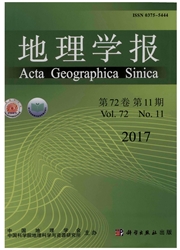

 中文摘要:
中文摘要:
文章在科恩提出的旅游活动精神“中心”理论的基础上,运用赫伊津哈的游戏理论对旅游中的游戏活动进行分析,发现不仅游戏意义隽永,而且旅游者在参与游戏的过程中同样能够体验到远方“中心”体验中的“类过渡状态”,因而游戏构成了旅游活动中的另一个精神“中心”。依据旅游者对三大精神“中心”的依附情况,文章将旅游体验模式分为转移模式、嬉戏模式、游戏模式和体验模式(包括实验模式和存在模式)。即使是在以大自然为对象的旅游活动中,旅游者只要参与了任何形式的游戏项目,就可以获得诸如神圣、荣誉、美德、审美、人际、怀旧等方面的精神意义。相对于文化的根植性而言,游戏具有普适性和较强的可移植性,这为游戏类旅游吸引物的开发与推广提供了新的理论基础。
 英文摘要:
英文摘要:
Based on the spiritual "center" theory proposed by Cohen, the paper makes an analysis of game activities in tourist activities by applying Huizinga' s play theory and finds that play is meaningful and tourists can also experience "liminoid state" in distant "center" among their tourist activities and thus play can be regarded as another spiritual "center". In accordance with different attachments of tourists to three spiritual "center", the paper divides travel experiences into shift mode; fun mode; play mode and experience mode (including experimental mode and existential mode). Even in natural tourist activities, the tourists can get such spiritual meanings as holiness, honor, virtue, aesthetic sense, interpersonal relationship and nostalgia only if tourists take part in any form of play items. As culture is rooted in society, play is universal and highly transplantable, which provides new theoretical basis for the development and promotion of play-type tourist attractions.
 同期刊论文项目
同期刊论文项目
 同项目期刊论文
同项目期刊论文
 期刊信息
期刊信息
